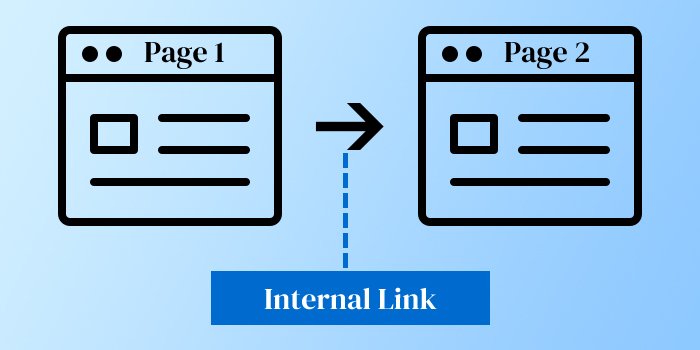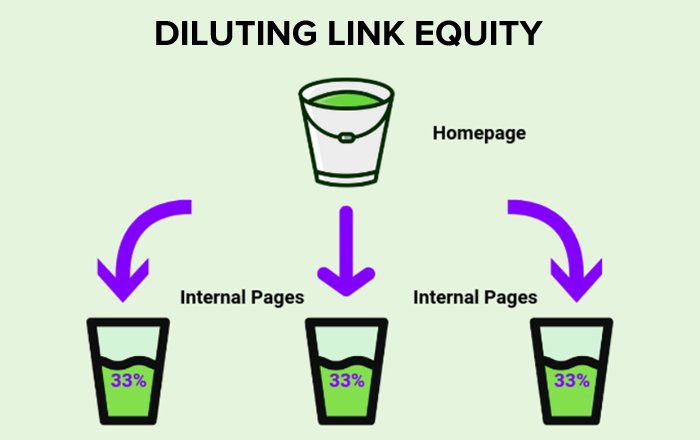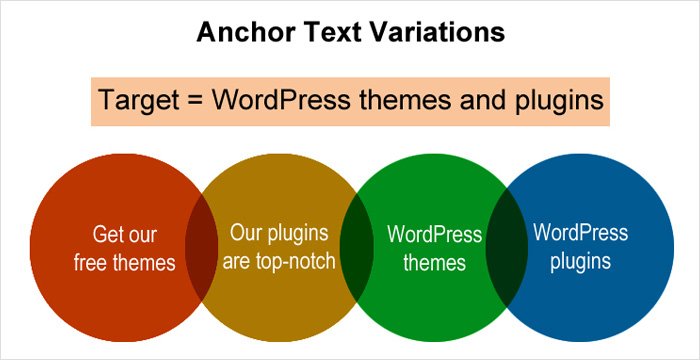
Search Engine Optimization, or SEO, is an essential aspect of online marketing. It involves using various techniques to optimize your website for search engines, increasing your visibility and attracting more traffic. One of the essential elements of SEO is internal linking, which involves linking to other pages on your website.
While internal linking can be beneficial for SEO, having too many internal links can harm your rankings. In this article, we will explore why too many internal links are bad for SEO.
Contents
What Are Internal Links, and Why Are They Important?

Before we delve into the dangers of too many internal links, let’s first understand what internal links are and why they are important for SEO.
Internal links are hyperlinks or backlinks.
They connect one page on your website to another page on the same website.
For instance, if you have a blog post on your website and want to link to a related post, you would use an internal link.
Internal linking is crucial for SEO for several reasons.
First, it helps search engines understand the structure and hierarchy of your website. Internal links provide search engines with information about which pages are the most important and how they are related. This helps search engines determine how to rank your pages in search results.
Internal links also help to distribute link equity across your website. Link equity, also known as link juice, is the value that a link passes to another page. By linking to other pages on your website, you can spread link equity and improve the overall authority of your website. This can help to improve the rankings of your pages in search results.
The Dangers of Too Many Internal Links
While internal linking is important for SEO, having too many internal links can harm your rankings. Here are some of the dangers of too many internal links:
Diluting Link Equity

As mentioned earlier, internal links help to distribute link equity across your website. However, if you have too many internal links, you can dilute the link equity and make it less effective. This can harm the authority of your website and negatively impact your rankings.
When you have too many internal links, you are essentially spreading your link equity too thin. This means that each link is passing less value to the pages it is linking to. As a result, your pages may not have enough authority to rank well in search results.
Confusing Search Engines
Another danger of too many internal links is that they can confuse search engines. If you have too many links on a page, search engines may struggle to understand the structure and hierarchy of your website. This can make it difficult for search engines to determine which pages are the most important and how they are related.
When search engines are confused, they may not be able to index and rank your pages effectively. This can harm your visibility and reduce the amount of traffic your website receives.
Creating a Poor User Experience
Internal links are not just important for SEO; they also play a critical role in user experience. When users visit your website, they expect to find relevant and helpful content. If you have too many internal links, you can overwhelm your users and make it difficult for them to find the information they need.
When users are frustrated with your website, they are more likely to leave and find what they are looking for elsewhere. This can increase your bounce rate and harm your rankings in search results.
Best Practices for Internal Linking
While too many internal links can harm your SEO, internal linking is still an important aspect of optimization. Here are some best practices for internal linking:
Use Relevant Anchor Text

Anchor text is the clickable text in a hyperlink. When you use relevant anchor text, you are providing search engines with additional context about the page you are linking to. This can help search engines understand the content of the linked page and improve the relevance of your website. Additionally, using relevant anchor text can also help users understand what they can expect to find on the linked page.
Limit the Number of Links
To avoid diluting link equity and confusing search engines, it’s essential to limit the number of links on a page. While there is no set rule for the number of internal links you should have on a page, it’s generally a good idea to keep it to a reasonable amount. A good rule of thumb is to have no more than 100 internal links per page.
Prioritize Important Pages
When internal linking, it’s important to prioritize the most important pages on your website. This can help search engines understand which pages are the most valuable and improve their rankings in search results. Additionally, prioritizing important pages can also improve user experience by directing users to the most relevant and helpful content on your website.
Use Descriptive and Hierarchical URLs
URLs are an important aspect of internal linking. Using descriptive and hierarchical URLs can help search engines understand the structure of your website and improve their rankings in search results. Additionally, descriptive and hierarchical URLs can also help users understand the content of the linked page and improve their overall experience on your website.
Conclusion
Internal linking is an essential aspect of SEO, but having too many internal links can harm your rankings. Diluting link equity, confusing search engines, and creating a poor user experience are all dangers of too many internal links. To avoid these dangers, it’s important to use best practices when internal linking. By using relevant anchor text, limiting the number of links, prioritizing important pages, and using descriptive and hierarchical URLs, you can optimize your internal linking and improve your SEO.
Tim has spent more than two decades in organic online marketing, working with some of the most well-recognized online brands in scaling their content marketing campaigns.
Connect with Tim on Linkedin & Twitter.
- How to Create More Linkable Content in the Age of AI - May 1, 2025
- Link Cost vs. Link Value: How to Balance the Equation - April 18, 2025
- Are Reciprocal Links Too Risky to Try? - February 21, 2025
